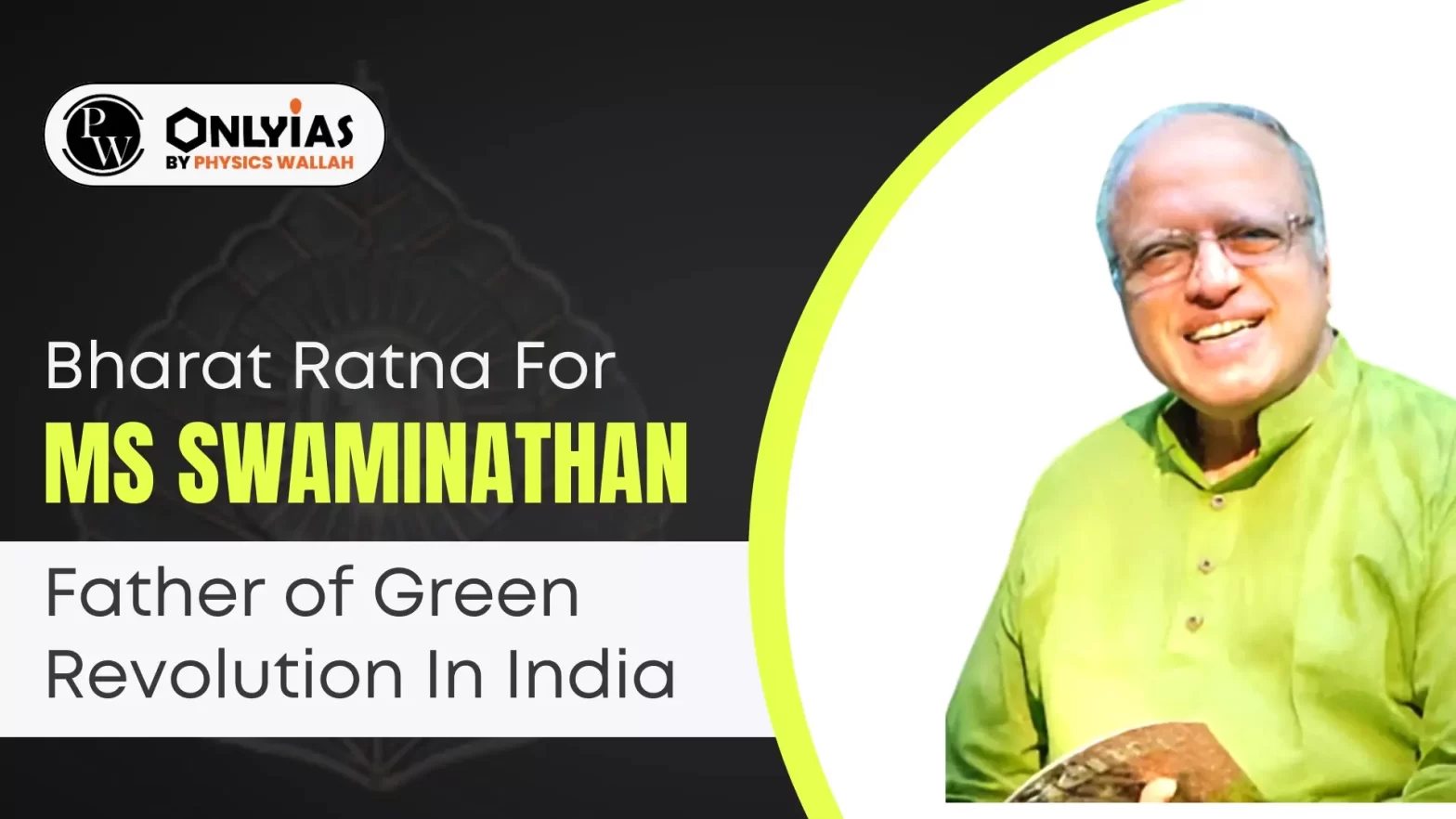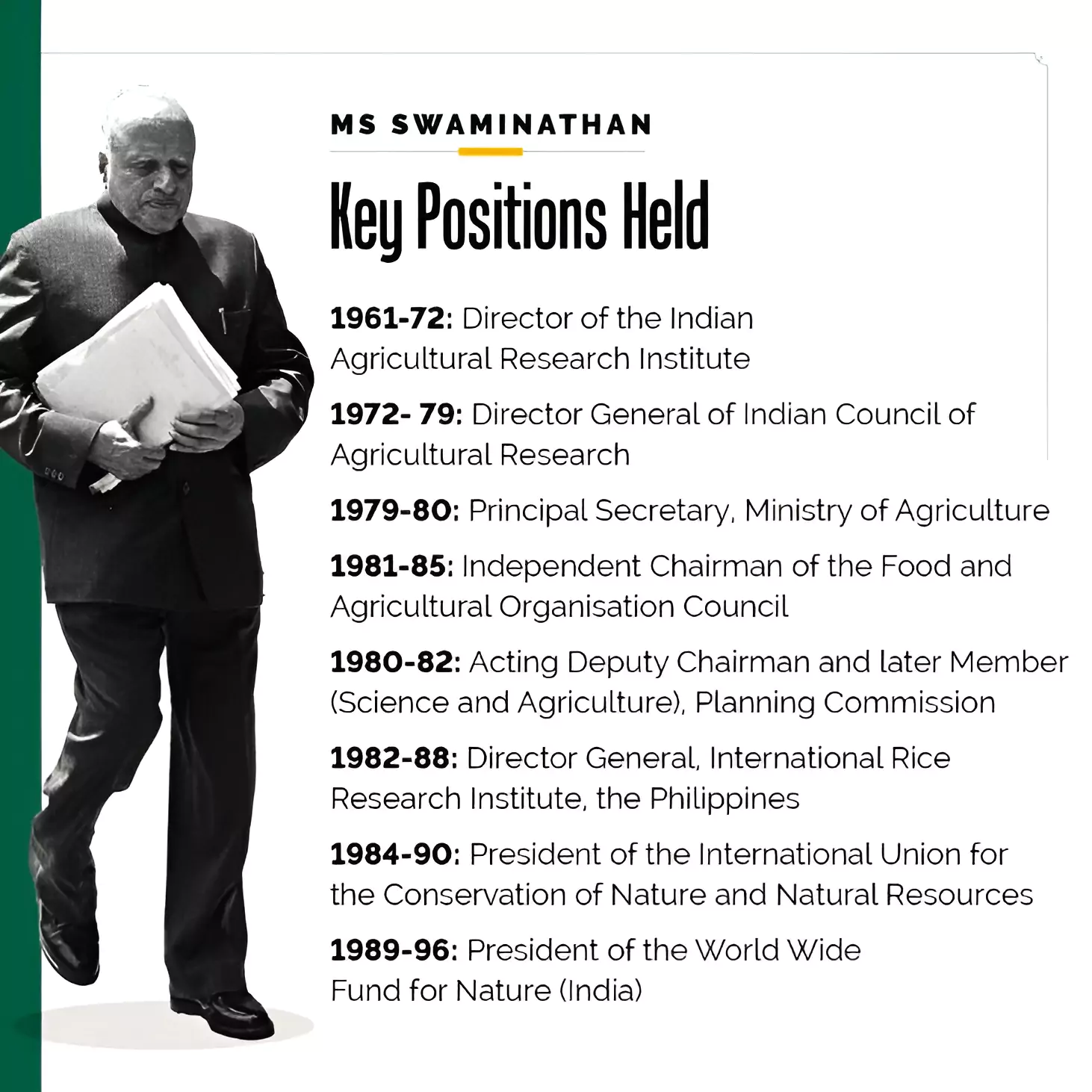Bharat Ratna Recipient 2024: The Prime Minister of India has announced that the renowned agricultural scientist Dr M S Swaminathan will be awarded India’s highest civilian award, the Bharat Ratna.

The Prime Minister of India has announced that the renowned agricultural scientist Dr M S Swaminathan will be awarded India’s highest civilian award, the Bharat Ratna.

Green Revolution In India: Boosting Agricultural Production
|
Dr MS Swaminathan’s work has not only laid the foundation for a self-sufficient India in food production, it also inspired a generation of scientists working in the agriculture sector across the world.
Also Read:
| Must Read | |
| NCERT Notes For UPSC | UPSC Daily Current Affairs |
| UPSC Blogs | UPSC Daily Editorials |
| Daily Current Affairs Quiz | Daily Main Answer Writing |
| UPSC Mains Previous Year Papers | UPSC Test Series 2024 |
MS Swaminathan was an agronomist, agricultural scientist, plant geneticist, administrator, and humanitarian, who is widely known as the ‘father of the Green Revolution in India’.
The Bharat Ratna is being awarded in recognition of his monumental contributions to India’s agriculture and farmers’ welfare.
Dr Swaminathan Committee recommended that the Minimum Support Price, which is the price farmers sell their crops to the government, should be at least 50 percent more than the weighted average cost of production.
Dr Swaminathan is considered to have played a pivotal role in helping India achieve self-reliance in agriculture and also made outstanding efforts towards modernizing Indian agriculture. His later research led to an exponential rise in productivity of wheat and rice through adaptation of chemical-biological technology. He also helped in developing rice with C4 carbon fixation capabilities, which allowed better photosynthesis and water usage. He also played a key role in the development of the world's first high-yielding basmati.
The green revolution is a term used to describe the rapid increase in agricultural production due to use of high-yielding plant varieties and also modern farming methods.

<div class="new-fform">
</div>